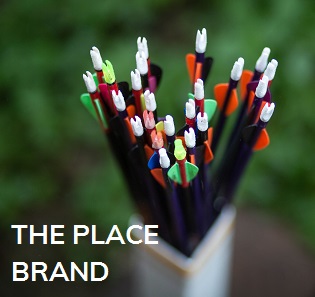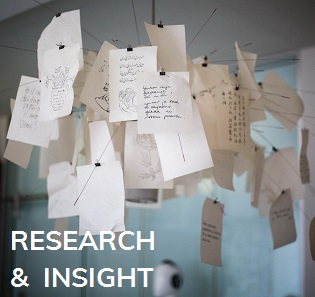The University of Nottingham has been awarded a prestigious Silver Engage Watermark by the National Co-ordinating Centre for Public Engagement (NCCPE). The watermark recognises the university’s commitment to involving the public in its work and the sharing of knowledge, teaching and research.
Every year, the university engages and interacts with many thousands of people and organisations, sharing knowledge and insights from our research and teaching, and working with business and civic partners to co-produce innovative solutions to the challenges faced by society. The NCCPE works to build an inclusive higher education sector where communities can contribute to, and benefit from, knowledge, teaching and research, and its Silver Engage Watermark indicates that engagement runs through the fabric of the University of Nottingham.
Deputy Vice-Chancellor Professor Jane Norman said:
“I am delighted that the University of Nottingham’s commitment to public engagement has won national recognition.
“Our teaching and research is informed and enriched by interaction with the communities we serve. Public engagement is at the core of our mission as a civic university and our vision as a university without borders. It strengthens the value of our publicly funded research by ensuring it is informed by and addresses real-world experience, and offers students an opportunity to make a difference. By reaching out, sharing and co-creating knowledge we help build stronger communities and inspire young people to reach their potential.”
Public engagement: what we do
In the past year, University of Nottingham students, researchers, technicians and colleagues engaged with more than 22,000 people through festivals and public programmes such as the Nottingham Festival of Science and Curiosity, Science in the Park, which is held at Wollaton Hall, Pint of Science, which takes place in pubs, and Being Human, which highlights the ways in which the humanities can inspire and enrich our everyday lives.
More than 200,000 people engage annually with the university’s Lakeside Arts, our on-campus public arts centre and cultural programme and the university’s free-to-access public lectures, arts performances, exhibitions and museum education events were attended by more than 110,000 people in 2022/23.
We teamed up with Nottingham City Council to introduce interactive, talking street furniture such as lamp posts, benches and even bins to gather views on what climate change means to local people, and how sharing how they can get involved in Nottingham’s goal to become the UK’s first carbon neutral city.
As part of the regeneration of Nottingham’s Broadmarsh – currently one of the largest city centre redevelopment projects in Europe – the university’s archaeologists and historians are partners in the City of Caves project, which aims to make Nottingham’s underground caves network a signature feature of the new development, boosting the local economy and celebrating the area’s heritage.
Heart and stem cell researchers from the university’s Biodiscovery Institute have taken their research into the community, working with artists, schools and primary schools to connect science, health, art and learning in innovative ways.
Engagement between researchers at the School of Medicine and the public inform clinical trials of new treatments, such as the National Institute for Health Research-funded Rapid Eczema Trials. The Nottingham Support Group for Carers of Children with Eczema helps design the trials by sharing the experience of children living with the condition.
‘Staff are committed to engagement’
Councillor David Mellen, Leader of Nottingham City Council, said:
“The University of Nottingham shares our commitment to Nottingham people and engaging with the communities we serve. I am delighted the university has been awarded a Silver Engage Watermark, which recognises the importance of partnership, collaboration and the sharing of expertise and skills to make a difference to people’s lives.”
Paul Manners, Co-director of the NCCPE said:
“We’re thrilled to award the University of Nottingham a Silver Engage Watermark, which they’ve achieved by demonstrating significant progress in their support for public engagement, and their evidence-based approach to focus future engagement plans. We found that staff are committed to engagement, eager to do it well and are well informed about the support available to them internally.
“We saw lots of examples of excellent public involvement, for instance in medicine and health sciences, and strong creative community engagement through the Lakeside Arts venue and programme. The NCCPE is proud to be able to celebrate institutions that are putting the work in, as we drive forward our mission towards an inclusive higher education sector where public and communities can contribute to, and benefit from, knowledge, teaching and research”.
Stephen Meek, Director of the university’s Institute for Policy and Engagement, said:
“Achieving the watermark is fantastic recognition and demonstrates to staff, students, partners, communities and funders the university’s commitment to embed public engagement in all that we do.
“So much work goes on this area across the university and the support of students, researchers and staff was instrumental in achieving the Silver Engage Watermark. The watermark is also an opportunity to focus our efforts and future plans.
“And the Silver Engage Watermark will add lustre to our 2024 Policy Impact and Public Engagement Awards, where we celebrate innovative, inspiring and impactful contributions in this areas by our staff.”
Public engagement: what to look out for
Castle Meadow Campus, the university’s new city-centre base, is providing access to innovation labs and digital resources to foster entrepreneurship and drive economic progress. Castle Meadow also provides the community with an inclusive space to help solve challenges through research projects, community initiatives and knowledge-sharing events.
City as Lab, which has exhibition and engagement space on Castle Meadow Campus, is connecting researchers, communities and partners to create, co-produce and test new ideas and digital technologies, focusing on real-world challenges in the Nottingham area. Projects include a study to further develop Nottingham’s thriving creative and digital industries, and helping Nottingham and Lincolnshire Credit Union to improve data management and better support people facing debt.
The university is supporting Nottingham’s bid to become a UNICEF child friendly city and is sponsoring and collaborating on Notts Youth Trends, a survey capturing the voices, opinion and hopes of 11-25-year-olds.
Posted on 12 December 2023







